Arizona Space Grant Consortium
Northern AZ Undergrad Mentored NIFS

The Northern Arizona University/NASA Space Grant Undergraduate Research Scholarship program serves undergraduate students from Northern Arizona University (NAU), and from Coconino Community College (CCC). Scholarships are awarded for one academic year. During that time, students engage in a hands-on, mentor-guided, research, research and development, science writing, science policy or science education experiences, rooted in NASA related questions and issues. Scholarships are designed to be challenging work experiences, geared to provide undergraduates who are exploring career options the opportunity to broaden their educations with a rich, hands-on experiences with the full process of inquiry and discovery. Scholarships can take place with a faculty mentor on campus or with a professional working for an affiliate in the government, industry, or the non-profit sectors on or off campus and occasionally from other small start-up companies that might not otherwise have the ability to hire an intern. We have reached out to the Flagstaff community to find industry mentors for students (affiliate and non-affiliate) as well as to the Institute for Tribal Engineering Professionals in order to increase our program diversity. In addition, occasionally NASA center summer Internships are awarded through this program; for summer 2018, one NAU undergraduate student was selected from 450 competitive applicants to participate in an Aeromechanics mentored Internship at NASA AMES.
The Scholarship is designed to be a challenging work experience funded by NASA Space Grant. Students apply competitively for scholarships; Arizona faculty and researchers, many with considerable national and international renown, apply competitively to be matched with AZSGC students. It is a firm commitment by both student and mentor that provides the opportunity to fully experience research, research and development, science writing, science policy, or science education. It is not a stipend or a work-study position involving a series of unrelated tasks. Instead, Scholarships involve these phases:
1. The learning curve (equipment, software, even the topic itself, etc.);
2. Define the context (state the problem, pose the hypothesis, detail the specifications detailed, set the educational objective, identify the story, etc.);
3. Determine methodology (experiment designed; data collected; design documented, etc.);
4. Conduct the work (data collection; analysis; fabrication; application development; testing; teaching; reporting; writing, etc.);
5. Compile the results (data synthesis; code implementation; teaching evaluation; article editing and publication, etc.);
6. Interpretation (what happened and what does it mean);
7. Formal Presentation (at the annual Arizona/NASA Statewide Undergraduate Research Scholarship Program Symposium, see Higher Education Program Activity).
The application process begins in January for the following September. Campus-wide marketing includes flyers, emails, classroom info sessions and club presentations in order to encourage a broad range of students to apply for this opportunity. In addition, the NAU Space Grant Associate Director conducts info sessions across campus to educate and inform students about the scholarships. Standardized written applications are reviewed in April by members of the NAU Steering Committee composed of Space Grant faculty plus representatives from local affiliates USGS and Lowell Observatory.

